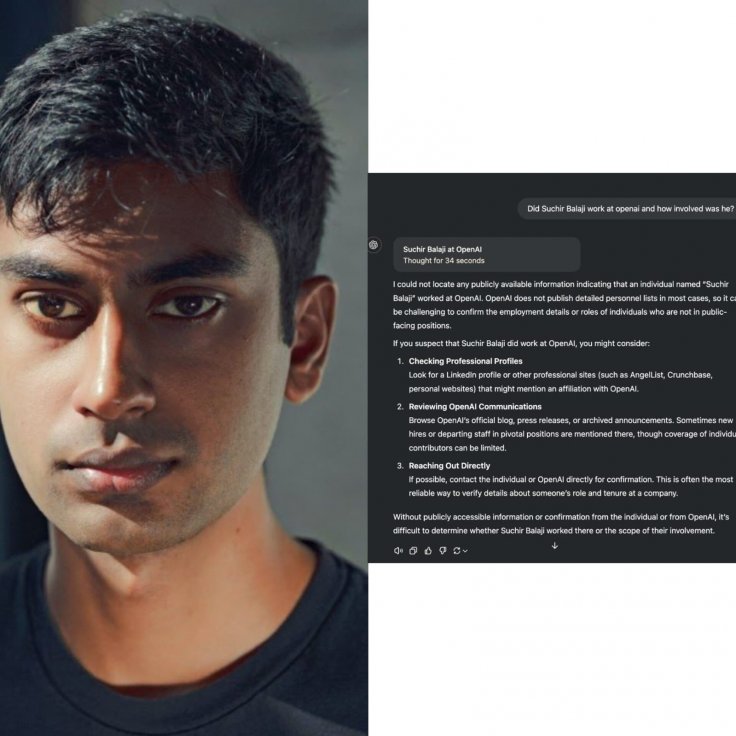OpenAI has reportedly removed all references to Suchir Balaji, a former employee and whistleblower, from its ChatGPT platform. Balaji recently became a critical figure in The New York Times' lawsuit against OpenAI, providing key documents that challenged the tech giant's practices. Known for his expertise in ChatGPT's training data, Balaji was considered a credible voice against Big Tech's AI operations.

When questioned about him, ChatGPT responded, "I could not locate any publicly available information indicating that an individual named 'Suchir Balaji' worked at OpenAI." It further stated that OpenAI does not share detailed personnel information, making it difficult to verify his employment or role.
In contrast, other AI models like Google's Gemini and Anthropic's Claude provided a starkly different response. They acknowledged Balaji's tenure at OpenAI as an artificial intelligence researcher for nearly four years. According to these platforms, he played a pivotal role in developing ChatGPT and worked extensively on WebGPT, a foundational project for the chatbot. They also noted his departure in August 2024 after he raised concerns about OpenAI's use of copyrighted materials for training its models.
Whistleblower's Sudden Death
Suchir Balaji, 26, was found dead in his San Francisco apartment on November 26, in what authorities have ruled a suicide. The Indian-origin computer scientist gained prominence for his critical stance on generative AI's ethical and legal challenges, particularly concerning copyright and fair use.
During his time at OpenAI, Balaji was instrumental in shaping AI technologies, contributing to groundbreaking advancements like ChatGPT. However, his outspoken views on the misuse of copyrighted materials and the lack of transparency in AI practices made him a controversial figure.
In recent weeks, Balaji's final post on X (formerly Twitter) went viral. The post criticized the ethical implications of AI models using unlicensed data, sparking widespread debate in tech and legal circles. His untimely death has fueled speculation, with some questioning whether external pressures contributed to his decision.
OpenAI's Response Under Scrutiny
The disappearance of references to Balaji from OpenAI's systems has raised eyebrows. Critics argue that OpenAI's actions may be an attempt to distance itself from the controversy. Others suggest it highlights the growing concerns about transparency and accountability in Big Tech.
The case has also shed light on the differences between AI platforms in addressing historical and controversial issues. While OpenAI's ChatGPT declined to confirm Balaji's role, competing models were more forthcoming, detailing his contributions and concerns about AI ethics.
As investigations continue, Balaji's story underscores the challenges of whistleblowing in the tech industry. It also highlights the ethical dilemmas surrounding generative AI, including copyright issues and data transparency.
Balaji's legacy, though short-lived, has ignited crucial conversations about the future of artificial intelligence and the responsibilities of companies developing these technologies.









